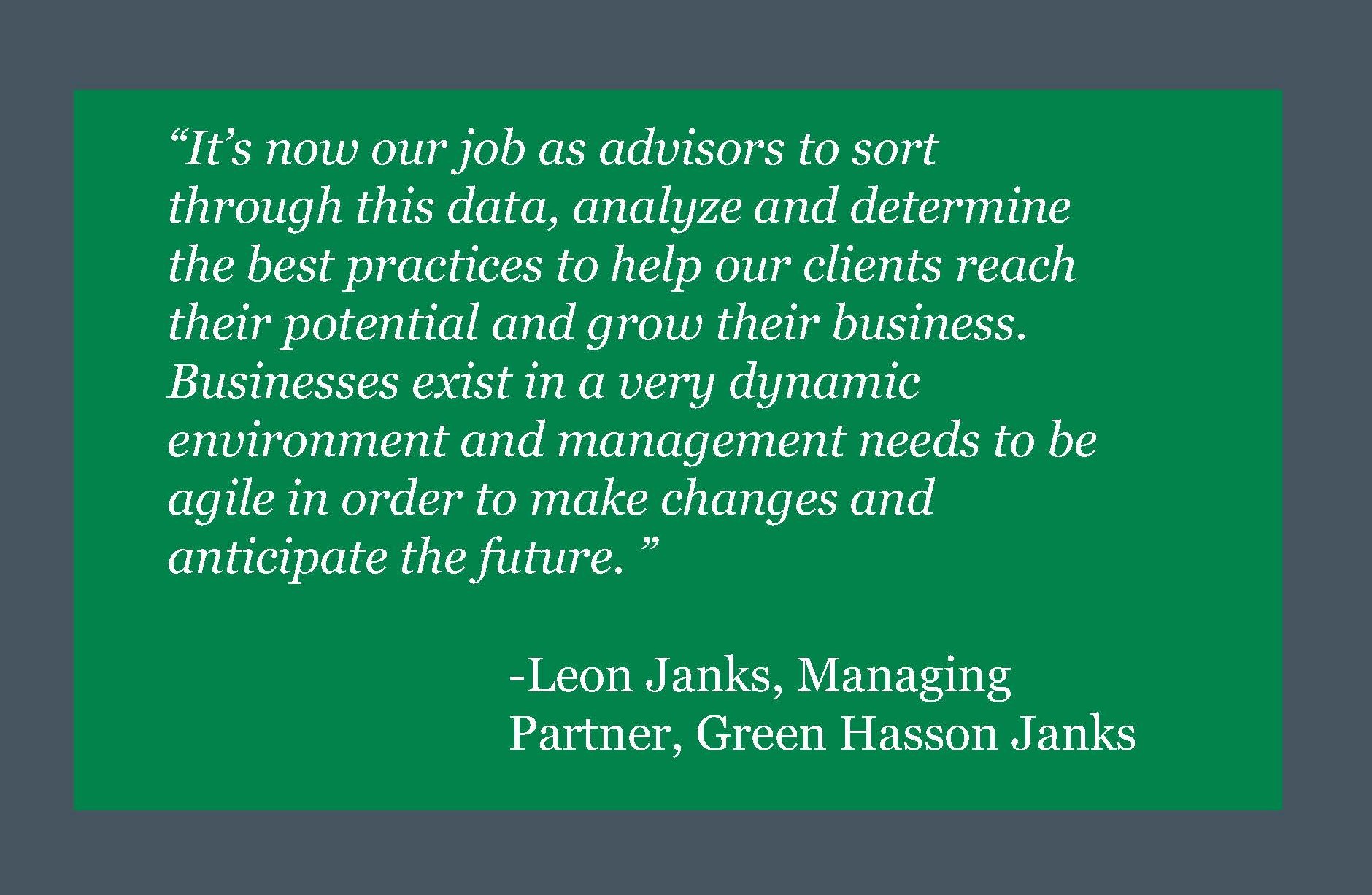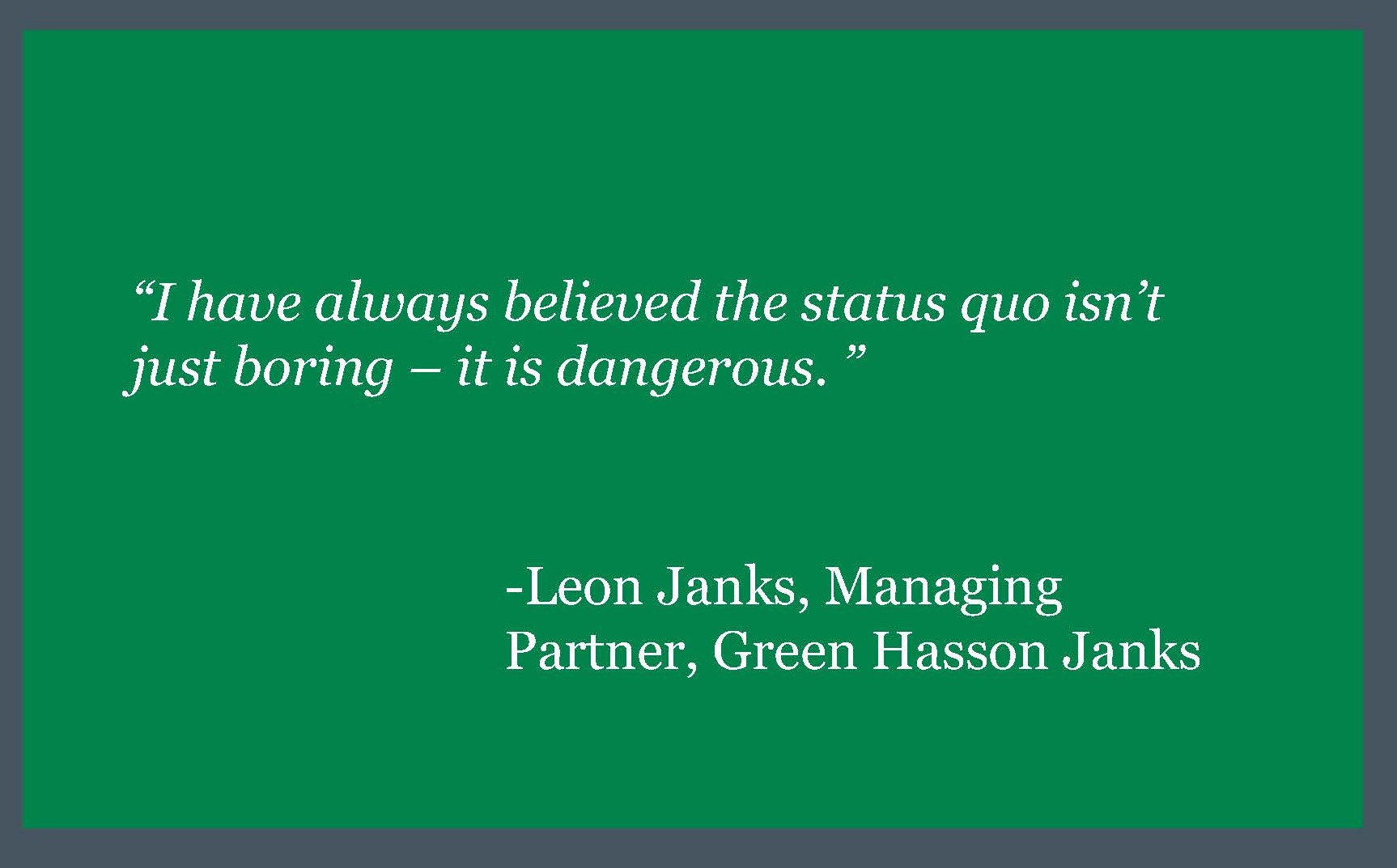Technology has become an integral component of the accounting industry. What was once exclusive knowledge is now overwhelmingly convenient for everyone to access. Today’s technological advances have completely reshaped the landscape and changed the dialog we have with our clients.

For much of accounting’s history, our job was to look backward and be our clients’ trusted advisor dealing with historic information. We would analyze financial statements in order to offer opinions on the financial status of a company, which is usually a requirement for banks and others.
In contrast, these days we have to evolve into our clients’ trusted futurists – we have to place our focus beyond compliance work; we must become trusted advisors helping our clients look toward the future.
Because of the wealth of knowledge and new automated programs, as accountants we now get to focus our time and energy on the data available to us. Our role should be to give strategic financial and business guidance, positioning ourselves to be more integrated into our client’s business and their future decision making
According to the International Federation of Accountants, increasingly sophisticated technologies are one of the main ways that the accounting profession will continue to evolve. These technologies will likely replace the traditional approach. Smart software systems, cloud computing, big data and social media will enable companies to benefit from this enormous amount of data which is now available to them.
It’s now our job as advisors to sort through this data, analyze and determine the best practices to help our clients reach their potential and grow their business. Businesses exist in a very dynamic environment and management needs to be agile in order to make changes and anticipate the future.
A key way accounting firms can help their professionals be more productive is by utilizing technology solutions to streamline work and automate processes. According to findings from the CCH Accounting Firm Client Survey, 100 percent of high-performing firms report that it is critical to have technology and information resources that enable a firm to provide high value-added services.
 Unless accounting firms are optimizing technology, it can be a challenge to deliver excellent service for their clients. High-performing firms stress the need to embrace technology to achieve goals of client service, productivity, management effectiveness and increased profitability. Common technologies include:
Unless accounting firms are optimizing technology, it can be a challenge to deliver excellent service for their clients. High-performing firms stress the need to embrace technology to achieve goals of client service, productivity, management effectiveness and increased profitability. Common technologies include:
- Document management systems
- Software as a service (SaaS) solutions
- Integrated tax and accounting suites
- Practice management systems
- Intelligent scanning tools
- Client portals
- Knowledge management systems
- “Anytime, anywhere” communication with clients
I have always believed the status quo isn’t just boring – it is dangerous. The environment is so dynamic right now, with data and technology becoming outdated in mere months. What is absolutely clear is that as trusted futurists we have to anticipate what will happen and adapt our thinking to redesign the route from Point A to Point B, even if Point B is an ever-changing, moving target.
It’s critical to be a “trusted futurist” – adapting to the new technology at our fingertips, enabling us to #BeMore valuable and #BeMore knowledgeable. One of our core values at GHJ is to encourage new ideas. To do so, we have to foster creative thinking from everybody – both within and outside our industry. As our profession continues to be impacted by the changing technological landscape and the demands of innovation, we must embrace the future and all that it brings.


